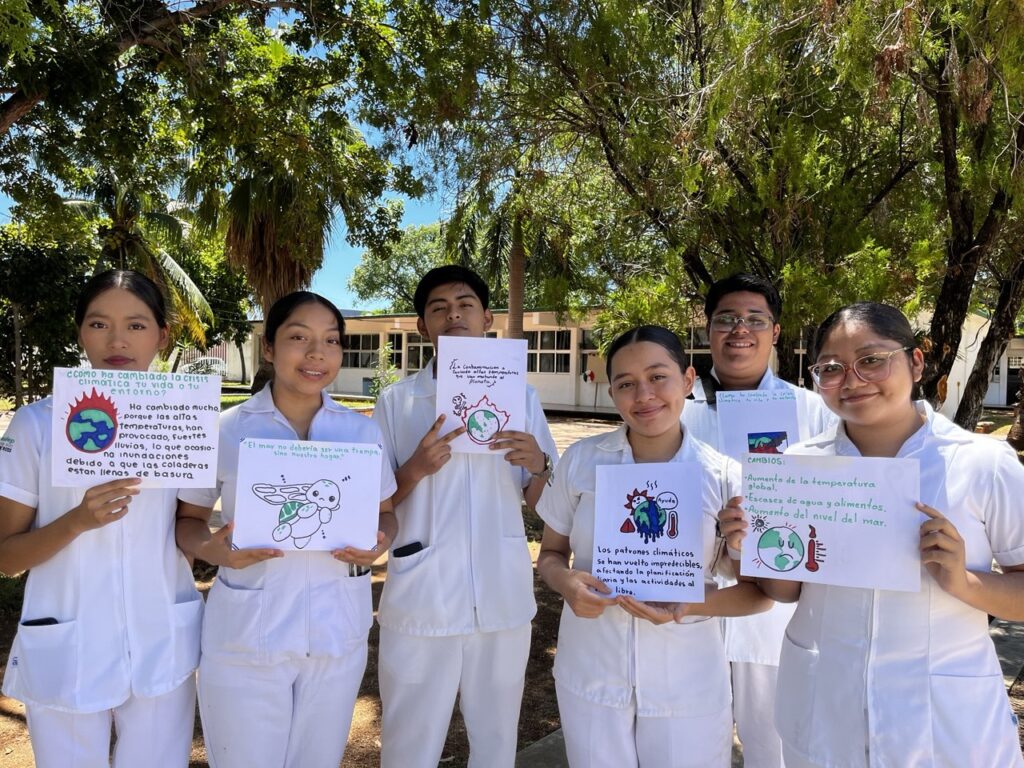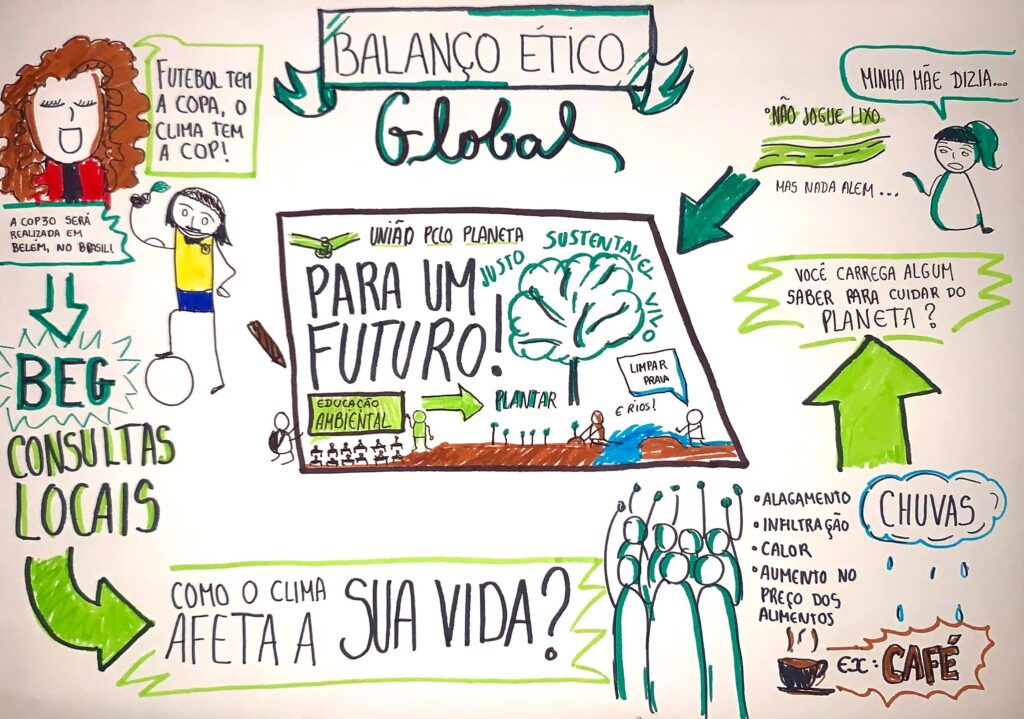The climate crisis is more than a technical policy challenge; it is a fundamental question of justice and human rights, a fact recently underscored by the International Court of Justice (ICJ). At the centre of this crisis are children and youth. They are both the largest population group on Earth and the group most severely and profoundly impacted by this crisis. For more than 18 years, Plant-for-the-Planet has worked tirelessly to address this injustice by empowering thousands of young people as Climate Justice Ambassadors. We aim to equip them with the tools and confidence to stand up for their rights and the vital ecosystems that their communities depend upon.
The Power of Empowerment and the Ambassador Journey
In the face of rising global polarisation and political tension, educating and empowering children and youth to become active agents of change has become more vital than ever. The impact of our work is clear: our network now consists of more than 100,000 Climate Justice Ambassadors. Many of these young people are actively representing the voices of their peers in diverse organisations, government bodies, and civil society, demonstrating the immense power of collective action.
Our work is built on the Ambassador Journey, a peer-to-peer program that transforms interest in climate justice into lifelong advocacy. Within our local Empowerment Clusters, dedicated Program Coordinators facilitate this journey – guiding youth and linking initiatives across four continents: Africa, Asia, the Americas, and Europe. These coordinators create safe, inclusive spaces where children are heard, empowered, and mobilised to take meaningful local action. This process is about transforming them from affected populations into active decision-shapers.
Participants undergo a comprehensive first year. This includes a Plant-for-the-Planet Academy, a tree-planting activity, and the planning and implementation of a first self-managed project addressing key agenda items related to ecosystem restoration and climate justice. In subsequent years, the Program Coordinators upskill existing cohorts through advanced peer-to-peer training, local and global network meetings, mentorship, and high-level speaking opportunities. This sustained support ensures that children develop the leadership skills necessary to become effective multipliers of climate literacy in their regions.

A Moral Imperative: Children’s Voices for the GES
A recent and powerful example of our empowerment effort was the Global Ethical Stocktake (GES) Consultations, which took place in August and September 2025, in the lead up to COP 30 in Belém, Brazil. The GES was initiated by the COP 30 Presidency to emphasise the moral and ethical dimensions of the climate crisis, moving beyond the technical review of the Paris Agreement. While the process explicitly mentioned youth, it did not specify children—a critical gap Plant-for-the-Planet and other organisations were determined to fill.
Through self-organised in-person and online dialogues, 600 children from various countries across the Global North and South—including Brazil, Chile, Costa Rica, Cameroon, Germany, India, Mexico, Nepal, Nigeria, Pakistan, Sri Lanka, and Uganda—shared their stories and demands. Their core message was clear: children are not only victims of the climate crisis, but they are powerful agents of change. Including their voices is not optional; it is a moral necessity.
These powerful insights, rooted in lived experience and intergenerational justice, will be delivered to the COP 30 Presidency. A delegation of 30 trained Climate Justice Ambassadors from Belém will physically represent the children globally at COP 30, proving the power of education and local activism.

Why Investment in Empowerment Matters
Children are disproportionately impacted by the climate crisis, facing higher risks of disease, malnutrition, and displacement. As UNICEF’s report Falling Short: Addressing the Climate Finance Gap for Children highlights, only a small fraction of climate funding is specifically allocated toward projects that consider the unique needs of children and youth.
At its core, our work is about transforming climate injustice into empowerment. A strong local community empowers children within the clusters to build resilience, share knowledge, and collaborate on climate action. It fosters a sense of belonging, amplifies their voices, and ensures collective impact.
“Nothing About Us Without Us”: this principle must guide the future of climate diplomacy. As the world heads toward Belém, the message is clear: Taking climate justice seriously means listening to those who will live with its consequences the longest – today’s children and youth. They deserve not just a voice but a seat at the table where decisions are made. You can move this mission forward in your own sphere: give young people a stage, support our work with your donation, share our story within your network and encourage young people to join the fight for our future.
About Plant-for-the-Planet
Plant-for-the-Planet is a global initiative fighting for climate justice and a liveable future for all. To do so, we empower children and youth to speak up and act now. We protect and restore forest ecosystems, conduct research and provide free software tools and advice to restoration organisations around the world.
We believe that the world’s three trillion trees need to be protected, and we are part of bringing back a further trillion trees.
Q4 2025 Climate Solutions Magazine
We encourage you to read this edition of the F20 Climate Solutions Magazine in full. The articles focus on the transformative potential that future-forward, bold policy can have.
Expand the preview below and immerse yourself in these thought-provoking articles.